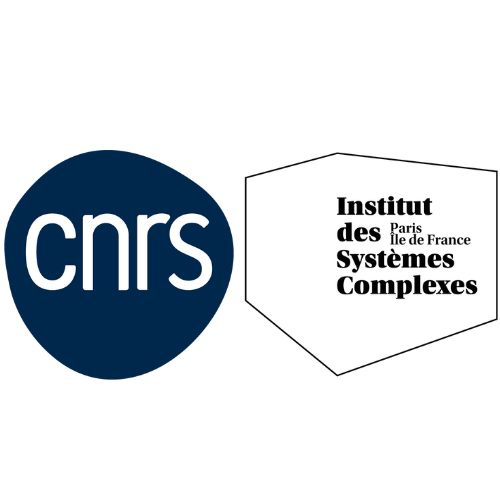Complex Systems Phylomemy
Phylomemies are inheritance networks of elements of knowledge invented and studied at the ISCPIF. They are complex objects designed to reveal the hidden structure and dynamics of corpora of textual documents. By using phylomemies, one can reconstruct the temporal evolution of research domains from thousands of scientific publications or follow the ongoing process of online debates. The phylomemy reconstruction method comes from co-words approaches: the global temporal structure of phylomemies emerge from the local interactions between terms or expressions extracted from the input documents. Phylomemies are implemented within the free software GarganText (https://gargantext.org/)
Examples:
- The scientific landscape of Complex Systems science (32k publications extracted from WoS, Pubmed, Scopus and Jstor) http://maps.gargantext.org/unpublished_maps_phylo/complex_systems/
- The online debates about the french presidential election 2022 (650k tweets) http://maps.gargantext.org/unpublished_maps_phylo/politique_fr_week_16/
- The evolution of clinical trials related to COVID-29 vaccines (1,8k trials extracted from international registries) http://maps.gargantext.org/unpublished_maps_phylo/vaccines_countries_10_2021/
References:
- Chavalarias, David, Quentin Lobbé, et Alexandre Delanoë. « Draw Me Science: Multi-Level and Multi-Scale Reconstruction of Knowledge Dynamics with Phylomemies ». Scientometrics, 22 novembre 2021. https://doi.org/10.1007/.
- Lobbé, Quentin, Alexandre Delanoë, et David Chavalarias. « Exploring, Browsing and Interacting with Multi-Level and Multi-Scale Dynamics of Knowledge ». Information Visualization, 23 septembre 2021, 14738716211044828. https://doi.org/10.1177/.
- Chavalarias, David, et Jean-Philippe Cointet. « Phylomemetic patterns in science evolution—the rise and fall of scientific fields ». PloS one 8, no 2 (2013): e54847.



